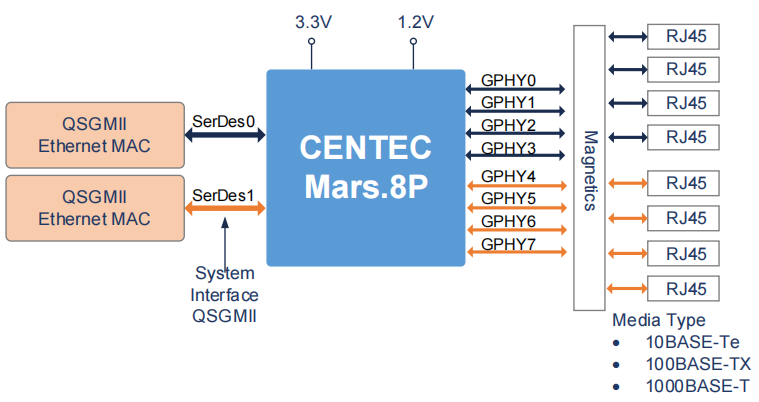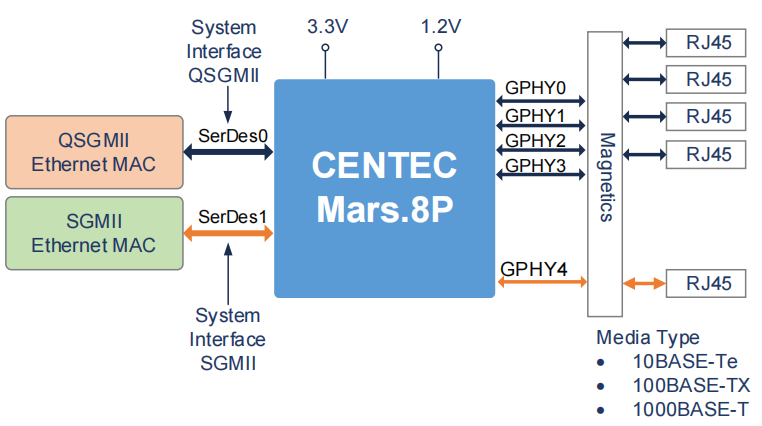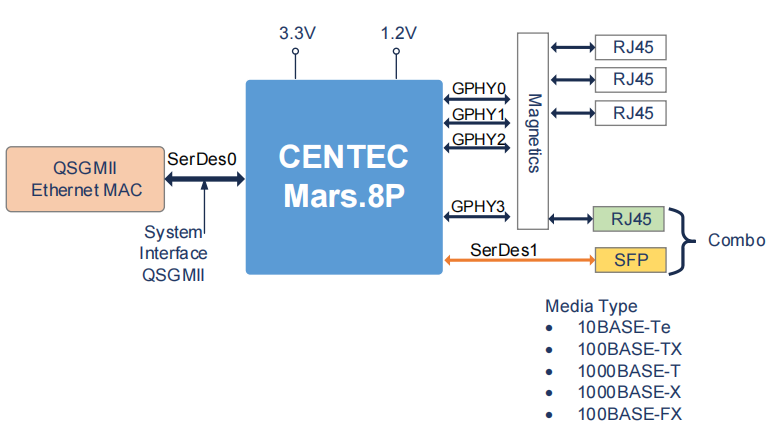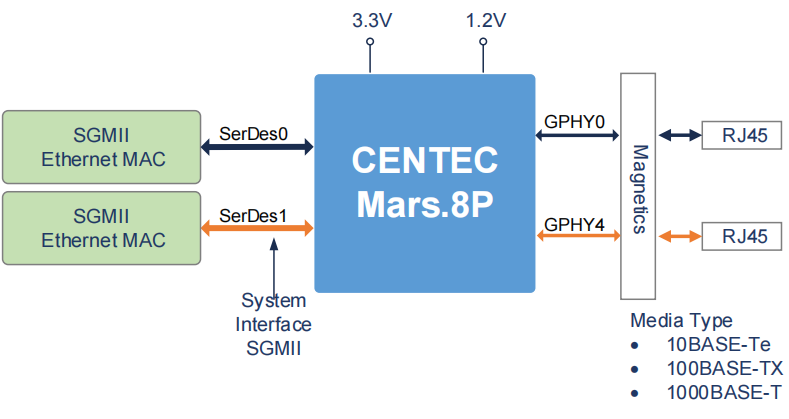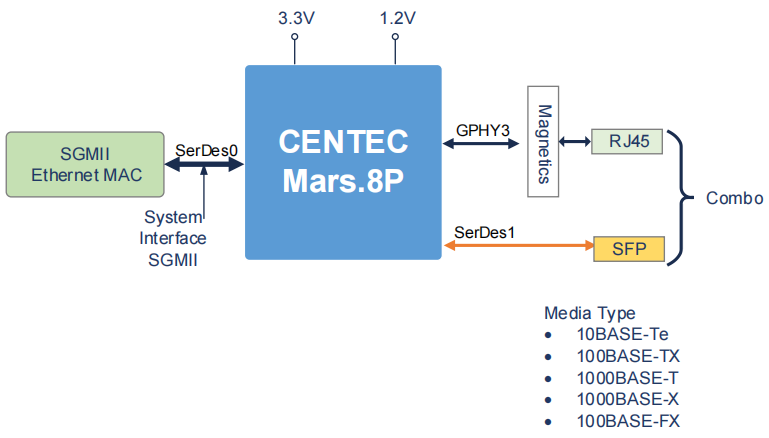Product Introduction
CTC21108 integrates eight independent 10/100/1000M Ethernet transceivers, supporting all physical layer (PHY) functions of 1000Base-T, 100Base TX, and 10Base Te Ethernet on Category 5 UTP cables (except for 1000Base-T half duplex), and 10Base Te functions can also be implemented on Category 3 or 4 standard cables.
The chip includes PCS, PMA, and PMD sublayers that support encoding/decoding, clocking/data recovery, digital adaptive equalization, echo canceller, crosstalk cancellation, and line drivers, among other required supporting circuit functions. CTC21108 also integrates an internal mixer, enabling the use of low-cost 1:1 transformer modules.
The chip supports one QSGMII output for every four independent transceivers, reducing PCB traces.
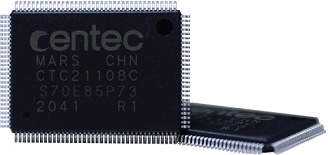
Figure 1: CTC21108 (Mars. 8P) PHY chip
The chip can be flexibly configured for different operating modes:
• QSGMII x 1 + SGMII x1 + Copper x5 mode
• SGMII x 2 + Copper x2 mode
• QSGMII x 2 + Copper x8 mode
• SGMII x 1 + Combo x1 mode
• QSGMII x 1 + Copper x3 +Combo x1 mode
Target Applications:
• High-density gigabit switches
• QSGMII MAC
Product Features:
• Each port supports full-duplex 10/100/1000M communication rate
• Support X-Range 100M long-range application function, disabled by default
– In 100M rate mode, the extension supports up to 400m cable transmission
• Support QSGMII (Quad Serial Gigabit Media Independent Interface) in 10/100/1000M mode
• Support SGMII mode directly linked to a specified Copper Giga PHY for speed adaptation
• Supports IEEE 802.3az Energy saving Ethernet (EEE)
– Support for EEE caching
– Compatible with legacy MAC or non-EEE-aware link-layer devices
•Supports Sync-E (Synchronous Ethernet)
• Cross-detection and auto-correction
• Automatic detection and correction of pair swaps, pair shifts, polarity reversals
• Support cable diagnostics
• Support an interrupt output to an external CPU for notification
• Support quick link fault indication
• Support serial LED interface
• SerDes Test Mode
– PRBS-7/10/31
– IDLE/K28.5/D5.6
– User-defined
– SerDes BIST
• Packet generation and verification are supported
• Low chip power consumption
• Easy layout, good EMI and good thermal performance
• Supports 25MHz crystal or 3.3V OSC input
• Supports 3.3V and 1.2V power inputs
• LQPF 128 package
Application examples
